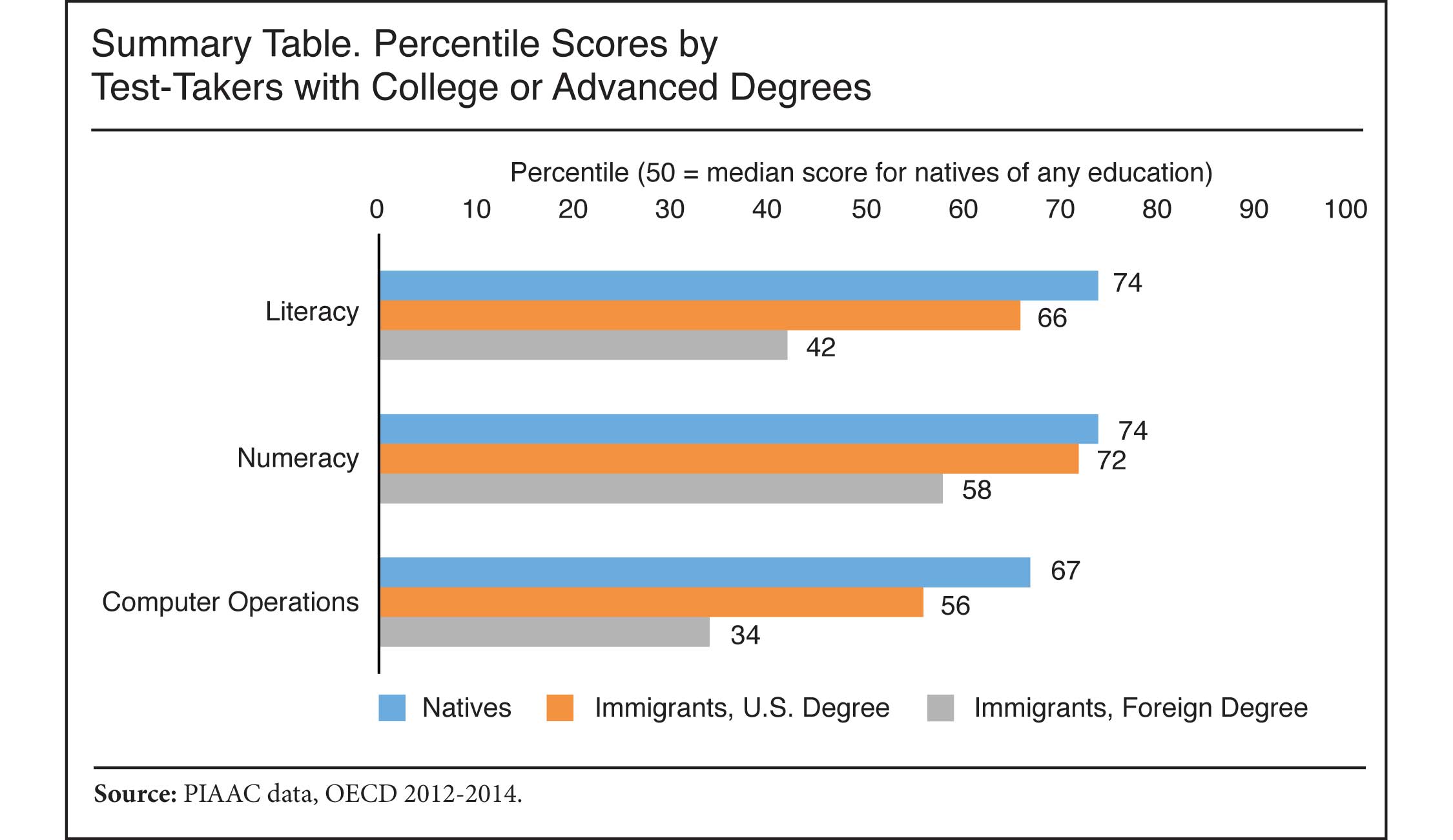On Friday, March 1, at 4:00 pm at the National Press Club, I'll be appearing on a panel with Michelle Malkin. We''ll be discussing high-skill immigration, and the starting point will be my new report discussed in the previous post. Admission is free, and there will be food provided, so please come.
WASHINGTON, D.C. (February 26, 2019) – The Center for Immigration Studies will host a panel discussion and reception Friday, March 1 focusing on the impact of immigration on skilled workers and the value of a foreign vs. domestic diploma. The starting point for conversation will be the recent report by independent policy analyst Jason Richwine which compared the skill levels of foreign-educated immigrants and native-born Americans.
REPORT: Foreign-Educated Immigrants Are Less Skilled Than U.S. Degree Holders
WHAT: Panel discussion on the value of foreign college degrees and the reality behind "high-skill" immigration
WHEN: Friday, March 1, 2019 at 4:00 p.m.
WHERE: National Press Club, Murrow Room, 529 14th St NW, Washington, D.C.
STREAM: Facebook Live
WHO:
MICHELLE MALKIN
Michelle Malkin is a nationally syndicated commentator and co-author of the 2015 book "Sold Out", which explores the effects of current immigration policies on American skilled workers. In the book, which she co-authored with CIS Fellow John Miano, she writes, "There is nothing special about the hundreds of thousands of H-1B visa holders flooding our workforce. Most are sponsored by companies that specialize in outsourcing of U.S. jobs."
JASON RICHWINE
Jason Richwine is an independent public policy analyst based in Washington D.C. and the author of the recent report, "Foreign-Educated Immigrants Are Less Skilled Than U.S. Degree Holders." In it, Richwine demonstrates that supposedly "high-skill" foreign-educated immigrants drastically under-perform native-born Americans with comparable degrees in various standardized exams.
